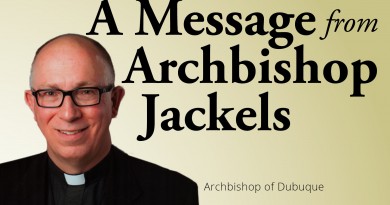Summary reflection 10: how do we live as good shepherds?
The following is a summary reflection of the tenth talk given by Father Raniero Cantalamessa to the US bishops during their 2019 retreat:
We begin by being with Jesus, being taught by him, and following his lead as a good shepherd.
Most people hear “good shepherd” and think of those who are ordained bishop or priest.
But the behavior we associate with a good shepherd – protecting and providing for those who can’t do for themselves – is the responsibility of all the baptized.
We, the baptized, are more than passive onlookers of the example of Jesus, say, like visitors to an art museum, enjoying what they see, and then going home unchanged.
Our faith in Jesus is participatory: our life is hidden with Christ in God. And so, if Jesus is a good shepherd, protecting and providing for others, then his followers do the same.
The behavior of a good shepherd is reflected in the Catholic Church’s long and well-defined body of social teaching, rooted in the example and teachings of Jesus.
Catholic social teaching hinges upon two cardinal principles: respect for human life and dignity, and the common good.
The common good ensures that all people enjoy the things needed to live in dignity: productive work and fair wages, food and shelter, education and health care, protection from harm, and the right to emigrate when these are unavailable in one’s homeland.
We might disagree about how people are afforded access to things needed for dignified living, but there should be no disagreement that people have a right to them.
And among the goods that all people have a right to share in, the most fundamental is the right to life, without which advocating for other rights just doesn’t make sense.
As Pope Francis says: The defense of unborn life is closely linked to the defense of each and every human right. It involves the conviction that a human being is always sacred and inviolable. Once this conviction disappears, so do solid and lasting foundations for the defense of human rights (Joy of the Gospel, 213-214).
On the basis of the common good and respect for human life and dignity, we have a responsibility to provide for and protect those unable to do for themselves.
That responsibility is greatest when others are least able to do for themselves, say, a child in the womb or an aged person. Our responsibility may decrease as the other person’s ability increases, but it never goes away entirely.
We care about and so care for others, no matter who it is, regardless of whether that person is judged worthy, asks nicely, is aware of the cost, or is grateful.
How do I live as a good shepherd, protecting and providing for others?


